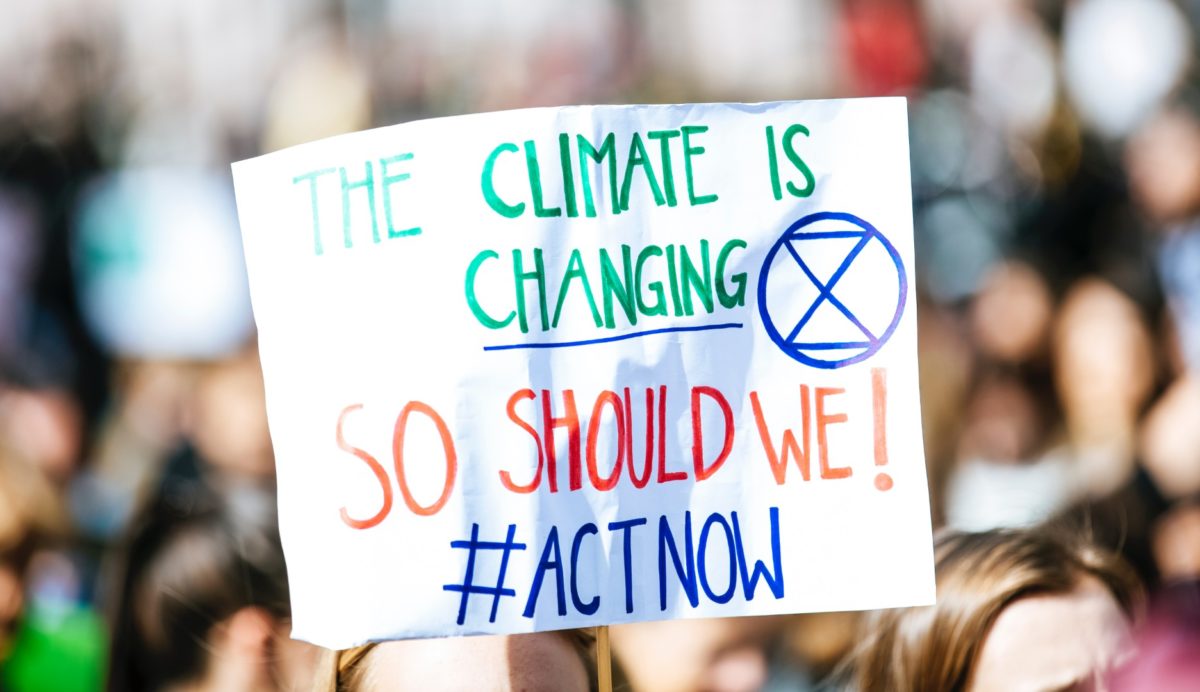Corporate irresponsibility kills. Whether it’s the climate, air travellers, drug consumers or the Amazon, death, both slow and fast, was stalking business in 2019. While the stakes couldn’t have been higher for responsible business in the final year of the decade, it has not been all bad news and there are at least some signs of a new mindset emerging. Here Andy Crane talks us through the biggest stories of the year.
- Climate emergency
With global school strikes, a burgeoning Extinction Rebellion movement, and Greta Thunberg named Time Magazine’s person of the year, it was hardly surprising that ‘climate emergency’ was Oxford’s word of the year in 2019. If the previous year had been marked by relative silence in response to scientific evidence of the impending climate catastrophe, 2019 represented a global awakening. Even so, companies have hardly been at the forefront of acknowledging and responding to the issue, despite evidence showing that just 100 companies have been responsible for 71% of the global CO2 emissions that cause climate change. There is little doubt that the climate emergency became the biggest responsible business issue in 2019 – the question remains, however, will major emitters finally engage in meaningful change, or will governments have the will to step in and regulate?
- Boeing 737 Max scandal
Two fatal crashes, which claimed the lives of nearly 350 people, resulted in Boeing’s top-selling 737 Max aircraft being grounded in 2019. A system designed to help the plane avoid stalling was found to be the cause of the crashes, with pilots apparently uninformed and untrained in how to override the system once it malfunctioned. Internal documents showing the company cutting corners and ignoring warnings in a rush to market led to a huge loss of trust and a halving of Boeing’s profits. All told, the Boeing Max case has fast become a prime candidate for being the Ford Pinto for the millennial generation.
- Opioid crisis
The opioid epidemic has been unfolding for years in the US with overprescribing of addictive painkillers beginning in the 1990s. However, as the scale of the problem has come into focus - with hundreds of thousands of deaths in the US now attributed to opioid overdoses - blame has increasingly settled on the drug companies that produce and distribute them. The crisis really grabbed attention in 2019 when Johnson & Johnson was the first company convicted for intentionally playing down the dangers and overselling the benefits of opioids. The firm was ordered to pay $572m (later reduced to $465m) to Oklahoma state which had brought the case in order to recoup the costs of addiction treatment and other healthcare costs. This followed hot on the heels of another drug company, Insys, settling multiple cases for bribing doctors to oversubscribe its opioid product. The firm subsequently filed for bankruptcy and its founder and other senior executives imprisoned. Settlements with more firms followed, but thousands of lawsuits are now in process, including more than 2600 alone against Perdue Pharma, the maker of OxyContin. The opioid crisis has rapidly turned big pharma into the new big tobacco.
- Amazon fires
The devastating images of vast swathes of the Amazon rainforest burning during the summer of 2019 brought international condemnation of the Brazilian government amid fears of the irreparable loss of biodiversity and the destruction of the world’s largest carbon sink. The fires were largely due to illegal slash and burn practices used to clear land for cattle pasture and crop plantations. So although Brazilian President Jair Bolsonaro rightly took a lot of the blame for supporting the practices, critics claimed that the global demand for beef, leather and soy was actually at the root of the fires. With NGOs identifying a “dirty dozen” companies in retail, agribusiness, and investment as driving deforestation, and consumers pressuring companies like Timberland to cease sourcing from Brazil, attention started to switch. Companies quickly started putting pressure on Brazil by issuing warnings and halting deals, and even the finance community came together to warn companies sourcing from Brazil to meet their deforestation commitments or risk economic consequences. The links between nationalism, climate change, and global capitalism have never been so starkly illustrated.
- Business Roundtable statement on the purpose of a corporation
2019 may will be remembered as the year when the CEOs of major US corporations finally caught up with the rest of us and declared that the purpose of the corporation is not just to enrich shareholders. The statement, released by the Business Roundtable and signed by nearly 200 CEOs, was remarkable in that, for the first time, company leaders agreed together that profit maximisation should be supplanted with “a fundamental commitment to all of our stakeholders”. Of course, it will take a lot more than nice words to change the culture of big business. However, as a marker that attention to stakeholder value is gaining legitimacy over shareholder value in the boardroom, its significance should not be underestimated.
- South Africa state capture commission
While the Trump impeachment story captivated much of the global media in 2019, over in South Africa, a no-less remarkable episode in challenging political corruption was unfolding in the country’s state capture commission. State capture is effectively corruption on steroids – widespread and deeply embedded so that private interests effectively capture the state apparatus and make it work for their own benefit. South Africa’s state capture commission was launched in 2018 to investigate corruption allegations during former President Zuma’s administration and continued throughout 2019. Described as a truth and reconciliation commission for our times, the evidence presented during the public hearings “has shaken South Africa”. Public officials responsible for various state bodies including the ministries of finance, and natural resources, the tax collection agency, and state-owned companies have said they were directly instructed by influential businessmen to make decisions to advance their interests and were rewarded with money and promotion as a result. While the outcome of the commission remains to be seen, the pervasive influence of business on politics in South Africa is now there for all to see.
- K-pop sex scandal
After Me-Too topped our list of top 10 responsible business stories in 2017, gender issues have remained center stage in corporate responsibility. But it was from the somewhat unlikely source of the South Korean K-pop music industry that the year’s biggest story emerged. K-pop is not only huge in its home country but is one of the country’s biggest exports, with K-pop artists lauded as international superstars. The 2019 sex scandal, though, has seriously threatened its reputation for good, wholesome entertainment. Amid stunning revelations of prostitution rings, sexual assault, rape, and “molka” (hidden camera pornography) among male K-pop stars and a spate of suicides among young female artists (apparently as a result of online abuse, sexual harassment, and excessive pressure from the industry), K-pop has fast had to wake up to the fact it has a problem. The entertainment companies behind the stars are supposedly well-known for their “darker underbelly” in the way that they handle female stars and it is little surprise that the scandal has tarnished the industry’s reputation and led to falling stock prices. More broadly, the travails of K-pop are increasingly being seen as symptomatic of a highly discriminatory society where women in South Korea are routinely the victims of sexual discrimination and harassment. This could be the wake-up call for Asia that Me Too was for the West.
- Ericsson corruption
Scandinavian companies are usually better known for being top sustainability performers, but for the second year in a row we have a Scandinavian company in the top 10 for a huge financial scandal. Following the Danske Bank money laundering scandal in 2018, this time it is the turn of Ericsson, the Swedish telecoms giant. Just when you thought that companies must have learned that bribery may not be such a good idea, Ericsson was fined a whopping $1bn by the US Department of Justice in December 2019 for a “years-long campaign of corruption in five countries to solidify its grip on telecommunications business.” The corruption reportedly ran from 2000 to 2016 and involved millions of dollars in improper payments. Oh dear. Someone wasn’t paying attention in ethics training. Still, one of the highest ever payouts under the US Foreign Corrupt Practices Act – second only to Petrobas’ $1.78bn penalty in 2018 – will hopefully focus minds a little more going forward.
- Progress on Plastics
There is no shortage of bad news stories about plastic pollution, and one of the biggest in 2019 was the report that Coca-Cola is once again the world’s biggest plastic polluter. In fact according to the audit of plastic litter conducted in over 50 countries, Coca-Cola is responsible for more plastic litter than the next three polluters combined. Despite the banner headlines, 2019 has also seen some meaningful progress on plastic pollution, and it looks like it could be the year we finally turn a corner in terms of translating concern into action. The launch this year of the first global commitment report from the Ellen Macarthur Foundation’s New Plastics Economy initiative marked a major milestone having mobilised over 400 companies representing 20% of all plastic packaging produced globally (including Coca-Cola) to commit to ambitious 2025 targets. More importantly, the subsequent progress report demonstrated a willingness of the signatories to disclose their progress towards the targets. 2019 also saw the launch of the Alliance to End Plastic Waste with 30 key companies across the plastic supply chain. Combined with individual commitments from the likes of Unilever, Heineken, and Tesco, there were clear signs in 2019 that companies were looking to turn a bad news story about plastic pollution into a more positive one.
- Gillette’s toxic masculinity ad
Finally, claiming the last spot in our top 10 is Gillette, and its divisive toxic masculinity ad. Taking a page out of the Nike corporate activism playbook, which had seen their 2018 Colin Kaepernick ad generate reams of positive publicity, plenty of controversy and a reported boon in sales, Gillette’s campaign caused a major furore back in the first few weeks of the year. The campaign sought to draw attention to the issue of “toxic masculinity” and drew on their well-known slogan, “the best a man can get” in response to footage of typical bad male behaviour. The ad sparked a storm of publicity, much of it negative, and reputedly contributed to an $8 billion loss the following quarter for Gillette. Despite strong execution and an important message, the ad showed just tricky it was to walk the brand activism tightrope. For every viewer who might warm to the woke messaging there are plenty more ready to fire off a tirade on social media about everything that is wrong with the position the company is taking... and the illegitimacy of the company in taking it.
As always, there are so many more big responsible business stories than we can squeeze into our top ten. Do let us know which ones you think we should have included in the comments. And here’s wishing you a responsible and sustainable 2020.
Header image by Markus Spiske on Unsplash
Respond



